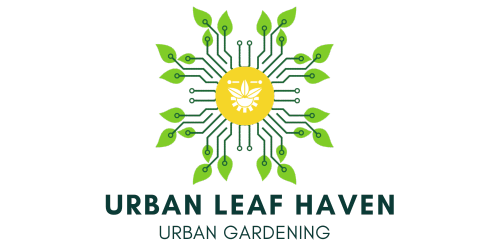Imagine transforming your concrete jungle into a lush green sanctuary, where plants thrive, and nature envelops you. Urban gardening, a growing trend in cities worldwide, brings a range of benefits that go beyond simply beautifying the landscape. From improving air quality to promoting mental well-being, this article explores the numerous advantages of urban gardening and why it’s gaining popularity among city dwellers. So, grab your gardening gloves and let’s discover how nurturing a small plot of green can transform not just your surroundings, but also your life.

Improved air quality
Reduction of air pollution
Urban gardening plays a vital role in reducing air pollution in cities. By planting trees, flowers, and other greenery, you help absorb harmful pollutants from the air. Plants act as natural air filters, trapping pollutants such as carbon monoxide, nitrogen oxide, and particulate matter. As you establish your garden, you contribute to creating a cleaner and healthier environment for yourself and your community.
Increase in oxygen production
One of the remarkable benefits of urban gardening is the increase in oxygen production. Through photosynthesis, plants take in carbon dioxide and release oxygen as a byproduct. By cultivating a garden in urban areas, you help replenish the oxygen levels, which is especially crucial in highly populated cities with limited green spaces. This increase in oxygen can improve air quality and create a more refreshing and breathable atmosphere for everyone.
Absorption of carbon dioxide
Urban gardening is an effective way to combat the rising levels of carbon dioxide in our cities. As plants absorb carbon dioxide during photosynthesis, they help offset the greenhouse gas emissions produced by human activities. By actively participating in urban gardening, you contribute to the reduction of carbon dioxide levels, helping to mitigate the effects of climate change and improve overall air quality.
Filtering of harmful pollutants
Plants have the remarkable ability to filter and trap harmful pollutants from the air. They act as natural air purifiers, capturing pollutants and toxins through their leaves and roots. Urban gardening provides an opportunity to create green spaces where plants can thrive and purify the surrounding air. By planting a variety of vegetation, you can effectively filter out harmful pollutants, leading to cleaner and healthier air for you and your community.
Enhanced mental well-being
Stress reduction
Engaging in urban gardening has been proven to reduce stress levels and promote relaxation. Spending time in nature, tending to your plants, and enjoying the beauty of your garden can have a soothing effect on your mind. The tranquility, peace, and serenity offered by gardening provide a much-needed break from the hustle and bustle of city life, allowing you to rejuvenate your mind and reduce stress levels.
Increased happiness
Urban gardening can significantly contribute to your happiness and overall well-being. Being surrounded by vibrant flowers, flourishing plants, and the fruits of your labor gives a sense of accomplishment and joy. Watching your garden grow and thrive brings a deep sense of satisfaction and fulfillment, leading to increased happiness and a positive outlook on life.
Boosted creativity
Creative expression plays a significant role in urban gardening. Designing and arranging your garden space allows you to unleash your creativity and express yourself through the choice of plants, colors, and layouts. It provides an outlet for your imagination and fosters a sense of artistic fulfillment. Gardening encourages you to think outside the box, experiment with different plant combinations, and find innovative ways to utilize your urban space effectively.
Improved concentration
Engaging in urban gardening requires focus and attention to detail. The process of caring for plants, monitoring growth, and tending to their needs helps sharpen your concentration skills. The act of gardening provides a break from digital distractions, allowing you to find solace in the simplicity of nature. By immersing yourself in gardening tasks, you can improve your ability to concentrate and focus on the present moment.

Access to fresh and nutritious food
Growing your own produce
One of the most rewarding aspects of urban gardening is the ability to grow your own fresh and nutritious produce. With limited access to green spaces and fresh food sources in urban environments, having a garden allows you to take control of your food supply. You can cultivate a variety of fruits, vegetables, and herbs that are pesticide-free, ensuring you have access to high-quality, organic produce right at your doorstep.
Reduced reliance on processed foods
Urban gardening promotes a shift away from processed and packaged foods towards homegrown, fresh alternatives. By incorporating the fruits and vegetables you grow into your meals, you eliminate the need for heavily processed ingredients. This reduction in reliance on processed foods can have significant health benefits, as they are often high in unhealthy fats, sugars, and preservatives. Embracing urban gardening empowers you to make healthier food choices and prioritize your well-being.
Increased access to organic food
For many urban dwellers, accessing organic food can be challenging and expensive. However, by engaging in urban gardening, you can have easy access to organic produce. By growing your own food in a controlled environment, without the use of chemicals or pesticides, you can ensure that your fruits and vegetables are grown organically. This increased access to organic food enhances your diet and supports a healthier lifestyle.
Improved food security
Urban gardening contributes to improved food security within communities. By growing your own food, you become less reliant on external food sources and more self-sufficient. During times of crisis or disruptions in the food supply chain, having a garden can provide a reliable source of fresh produce. Urban gardening fosters a sense of resilience and security, ensuring that you have access to nutritious food even during challenging times.
Restoration of biodiversity
Creation of habitats for pollinators
Urban gardening is an excellent way to support vital pollinators such as bees, butterflies, and birds. By planting a diverse range of flowers and native plants, you create an inviting environment for these essential creatures. Pollinators play a crucial role in the reproduction of plants and the overall health of ecosystems. By providing them with a habitat in your urban garden, you contribute to the restoration of biodiversity and help preserve these valuable species.
Supporting local wildlife
Urban environments often lack the natural habitats required to support diverse wildlife. However, through urban gardening, you can create spaces that attract and support local wildlife. By incorporating elements such as bird feeders, bird baths, and native plant species, you provide essential resources for birds, insects, and small mammals. The presence of wildlife in urban areas brings a sense of connection to nature and promotes a healthier and balanced ecosystem.
Preservation of endangered plant species
Urban gardening can play a significant role in the preservation of endangered plant species. By cultivating rare and endangered plants in your garden, you help protect them from extinction. Urban gardens can act as sanctuaries for these precious plants, allowing them to thrive and reproduce in a safe environment. Through your efforts, you contribute to the preservation of biodiversity and the conservation of plant species that are under threat.
Promotion of ecological balance
Urban gardening is an integral part of promoting ecological balance in urban environments. By introducing a variety of plants, you create a balanced ecosystem that supports a wide range of organisms. This balance helps control pest populations naturally, reducing the need for harmful pesticides. By nurturing a diverse and thriving garden, you contribute to the ecological well-being of your community and enhance the overall balance between species.

Positive impact on climate change
Reduced carbon footprint
Urban gardening offers a practical way to reduce your carbon footprint and combat climate change. By growing your own food locally, you reduce the energy and resources required for long-distance transportation of produce. Additionally, plants in urban gardens capture and store carbon dioxide, helping to offset greenhouse gas emissions. By actively participating in urban gardening, you contribute to the fight against climate change and create a more sustainable future.
Mitigation of urban heat island effect
Cities often experience significantly higher temperatures compared to surrounding rural areas due to the urban heat island effect. Urban gardening plays a crucial role in mitigating this effect by providing shade and cooling through evapotranspiration. The presence of trees and vegetation in urban areas helps reduce the temperature, creating a more comfortable and livable environment for residents. By actively engaging in urban gardening, you help cool your surroundings and alleviate the challenges posed by urban heat islands.
Alleviation of stormwater runoff
The increase in impervious surfaces in urban areas results in excessive stormwater runoff, leading to flooding and water pollution. The presence of gardens and green spaces helps absorb and filter stormwater, reducing the burden on drainage systems. By incorporating rain gardens, green roofs, and permeable surfaces in your urban garden, you help alleviate stormwater runoff and its adverse impacts. Urban gardening fosters sustainable water management practices and promotes a healthier urban environment.
Contribution to climate resilience
The effects of climate change are becoming increasingly apparent, and cities need to adapt to these changes. Urban gardening plays a critical role in building climate resilience by creating green spaces that can withstand and mitigate the impacts of climate change. By incorporating drought-tolerant plants and rainwater harvesting systems, you contribute to building a resilient urban landscape. Urban gardens serve as models for sustainable living and can inspire and educate others on how to adapt to a changing climate.
Community building
Promotion of social interaction
Urban gardening creates opportunities for social interaction and community engagement. Gardens act as gathering spaces where people from diverse backgrounds can come together and share their love for gardening. Whether it’s organizing community workdays, sharing gardening tips, or exchanging produce, urban gardens foster social connections and promote a sense of belonging within the community. By participating in urban gardening, you can build meaningful relationships and strengthen the social fabric of your neighborhood.
Creation of shared spaces
Urban gardens provide shared spaces that can be enjoyed by the entire community. Creating community gardens or transforming vacant lots into vibrant green spaces encourages people to come together and enjoy nature. These shared spaces become places where friendships are formed, conversations are had, and a sense of community is cultivated. By actively participating in creating and maintaining these shared spaces, you contribute to the beautification of your neighborhood and create inclusive environments for all.
Encouragement of collaboration
Urban gardening encourages collaboration and teamwork within communities. By working together on garden projects, neighbors can pool their skills, knowledge, and resources to create thriving gardens. Collaborative efforts such as community composting, seed sharing, and garden maintenance foster a sense of unity and shared responsibility. Through collaborative urban gardening, you can make a positive impact on your community and establish lasting connections with your neighbors.
Strengthening of neighborhood connections
Urban gardening cultivates stronger connections between neighbors, creating a sense of belonging and a shared purpose. As you engage in gardening activities, you have the opportunity to connect with like-minded individuals and develop meaningful relationships. Sharing gardening tips, exchanging produce, and supporting one another in the various stages of garden development strengthens the bond within the neighborhood. Urban gardening serves as a catalyst for building a tight-knit community where everyone feels a sense of ownership and pride.
Educational opportunities
Hands-on learning experiences
Urban gardening provides valuable hands-on learning experiences for people of all ages. Whether it’s planting seeds, observing the growth of plants, or learning about different gardening techniques, the process of urban gardening fosters experiential learning. Children can develop a deeper understanding and appreciation for nature, while adults can acquire new skills and knowledge. The garden becomes a classroom where learning happens through direct engagement, sparking curiosity and fostering a lifelong love for learning.
Teaching about sustainable practices
Urban gardening is an excellent platform for teaching and promoting sustainable practices. By embracing organic gardening methods, conserving water, and practicing composting, you exemplify sustainable living to others. Educating yourself and others about the importance of sustainable practices in gardening empowers individuals to make conscious choices that have a positive impact on the environment. Urban gardens become living examples of sustainability and inspire others to adopt similar practices in their own lives.
Encouragement of gardening knowledge
Urban gardening encourages the sharing and spreading of gardening knowledge within the community. Whether it’s through workshops, gardening clubs, or online platforms, individuals can learn from experienced gardeners and exchange tips and tricks with fellow enthusiasts. The transfer of gardening knowledge enriches the collective understanding of best practices, plant care, and gardening techniques. By becoming part of the urban gardening community, you have access to a wealth of knowledge that can enhance your gardening skills and inspire your creativity.
Development of food literacy
Urban gardening can help develop food literacy within communities. As individuals engage in growing their own food, they develop a deeper understanding of where their food comes from, the seasonal cycles of plants, and the importance of fresh and nutritious produce. Urban gardening promotes a closer relationship between individuals and their food, fostering a sense of appreciation for the effort and care that goes into growing it. With increased food literacy, individuals are better equipped to make informed choices about their diet and overall well-being.
Improved mental and physical health
Increased physical activity
Urban gardening provides an excellent opportunity to engage in physical activity and exercise. Tending to your garden involves activities such as digging, planting, watering, and weeding, which require physical movement. Regular engagement in gardening tasks helps improve flexibility, strength, and endurance. The physical activity associated with urban gardening is a natural and enjoyable way to stay active and maintain a healthy lifestyle.
Better nutrition
By growing your own food, you have better control over the nutritional value of the produce you consume. Urban gardening allows you to prioritize fresh and organic fruits, vegetables, and herbs in your diet, ensuring that you incorporate wholesome and nutritious ingredients. By consuming homegrown, nutrient-dense food, you support your overall health and well-being.
Reduced risk of chronic diseases
Engaging in urban gardening has been linked to a reduced risk of chronic diseases such as obesity, heart disease, and diabetes. The physical activity associated with gardening helps maintain healthy body weight and reduces the risk of obesity-related illnesses. Additionally, a diet rich in fresh produce from your urban garden provides essential vitamins, minerals, and antioxidants that support a healthy immune system and help prevent chronic diseases.
Enhanced immune system
Spending time in nature and engaging in activities like urban gardening can have a positive impact on your immune system. Exposure to the diverse microbiome found in soil and outdoor environments helps stimulate and strengthen the immune system. The act of gardening, combined with the inhalation of fresh air and contact with plants, can boost your immune response and enhance your overall well-being.
Reduction of urban heat island effect
Cooling effect through evapotranspiration
Urban gardening contributes to reducing the urban heat island effect through evapotranspiration. When plants release water vapor through their leaves, it creates a cooling effect in the surrounding area. By introducing more vegetation in urban environments through gardening, you help lower the temperature and counter the heat island effect. This not only improves the overall comfort but also reduces the energy required for cooling buildings, leading to significant energy savings.
Shade creation and temperature reduction
The presence of trees and vegetation in urban gardens creates shade, which helps reduce the temperature in urban areas. By strategically planting trees and tall plants, you can provide shade and alleviate the heat intensity in your immediate surroundings. This temperature reduction enhances the livability and comfort of urban spaces, making them more enjoyable for residents, workers, and visitors.
Alleviation of health risks related to heat
High heat can pose significant health risks, especially for vulnerable populations such as the elderly, children, and individuals with pre-existing conditions. Urban gardening plays a vital role in alleviating these risks by creating cooler areas and promoting heat relief strategies. By incorporating gardens and green spaces in urban environments, you contribute to the well-being and health of your community, reducing the potential negative impacts of extreme heat.
Energy savings in cooling systems
The cooling effect provided by urban gardening can result in significant energy savings for buildings and cooling systems. The shade created by trees and plants reduces the need for air conditioning and lowers energy consumption. By actively engaging in urban gardening and promoting the greening of urban areas, you help reduce the demand for cooling systems, leading to both economic and environmental benefits.
Sustainable land use
Optimal utilization of available space
Urban gardening allows for the optimal utilization of available space in densely populated areas. Even small balconies, rooftops, or window sills can be transformed into thriving gardens. Through vertical gardening, container gardening, and creative landscaping techniques, you can maximize the use of limited urban space and transform it into productive areas. Urban gardening demonstrates that no space is too small to contribute to a greener and more sustainable urban environment.
Conversion of vacant lots into productive areas
Vacant lots in urban environments often contribute to the degradation and blight of neighborhoods. However, through urban gardening, these neglected spaces can be transformed into productive areas. By converting vacant lots into community gardens, you can revitalize and beautify the landscape while providing opportunities for community engagement. This transformation not only improves the aesthetic appeal of the neighborhood but also cultivates a sense of pride and ownership among residents.
Reduction of urban sprawl
Urban gardening promotes sustainable land use practices by reducing the need for urban sprawl. By utilizing available urban space for gardens, you help preserve undeveloped land on the outskirts of cities. Urban gardens provide an alternative to expanding urban areas into natural habitats and agricultural lands, contributing to the preservation of ecosystems and the protection of biodiversity.
Preservation of green spaces
The presence of green spaces is crucial for the well-being and quality of life in urban areas. Urban gardening helps preserve and enhance existing green spaces, promoting a healthier and more sustainable environment. By actively participating in urban gardening, you contribute to maintaining the urban ecosystem and safeguarding green areas for future generations to enjoy.
In conclusion, urban gardening brings a myriad of benefits to individuals, communities, and the environment. From improved air quality and enhanced mental well-being to better nutrition and educational opportunities, the advantages of urban gardening are numerous and far-reaching. By embracing urban gardening, you not only create a greener and more sustainable urban environment but also foster a sense of connection, community, and well-being. So grab your gardening tools, get your hands dirty, and experience the transformative power of urban gardening firsthand. Your city, your community, and your well-being will thank you for it.


